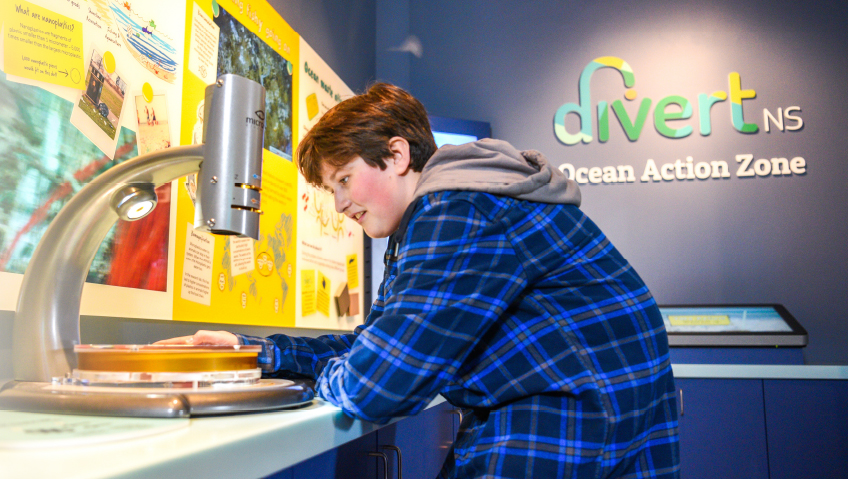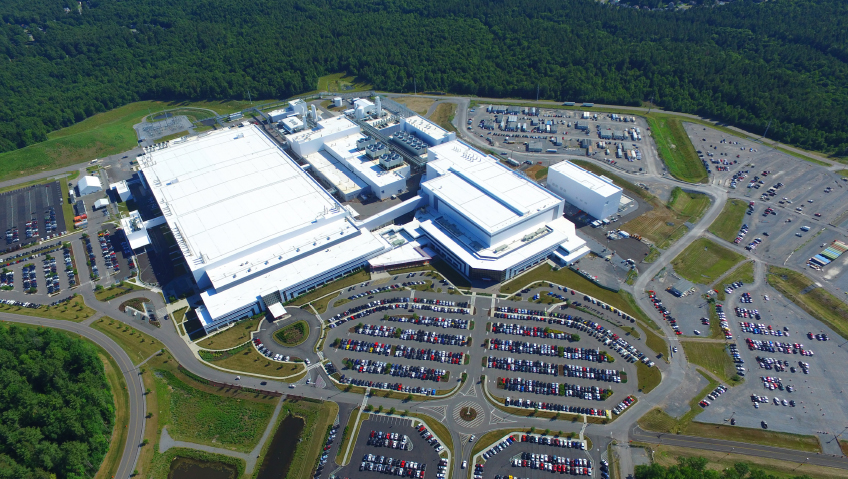With a mission to improve the environment, economy, and quality of life, Divert NS has been working with Nova Scotians to reduce, reuse, recycle, and recover resources since 1996.
Headquartered in Truro, the province’s hub, Divert NS is the registered business name for the Resource Recovery Fund Board Inc., a not-for-profit organization established by the province of Nova Scotia. Leading by example, it aims to champion sustainability through a combination of stewardship programs, education and awareness initiatives, and strategic partnerships, while providing new opportunities and approaches to waste diversion and reduction.
Such an organization is unique in Canada, because while there are agencies in all provinces doing some of the things Divert NS does—such as operating the Beverage Container Deposit Refund Program—there is no other provincial organization with a mandate as comprehensive.
To learn how Divert NS has helped make Nova Scotia nationally recognized as an innovator in waste diversion solutions, we spoke with Kurt Laskow-Pooley, the organization’s Director of Programs and Development.
The circular economy
Underpinning the organization is the concept of the circular economy, which Laskow-Pooley defines as “a system or model where materials and/or products are kept in circulation for as long as possible. It is the opposite of the traditional system where a material is used to create a product, that product is consumed, put into waste, and goes to a landfill.”
In a circular economy, that material is recycled. It is either made into a new product or enters a closed loop system in which waste material is used to create the same product it was made from—for example, bottles which can be made into new bottles, which closes the loop.
The focus of the circular economy is on changing how ‘waste’ is used and how it can be seen as a resource, rather than junk to be discarded in landfill, which creates a whole set of new problems for the environment and human health, including water and air pollution.
“Waste diversion is climate action,” says Laskow-Pooley. “Municipal landfills are responsible for approximately 23 percent of Canada’s methane emissions, so we want to reduce the amount of waste material that is created and keep as much of it out of landfills as possible,” he explains.
“We want to change people’s mindset about waste, because all ‘waste’ is not necessarily ‘waste,’ and should be seen as a byproduct of manufacturing and a resource that can be used to create another product.”
Beverage containers and used tires
Recycling beverage containers and used tires in Nova Scotia alone saves 47,869 tonnes of GHG emissions each year, which is the equivalent of removing 7,298 cars from the road annually, and worth $1.4 million under carbon pricing. In addition, it creates local jobs and stimulates the circular economy.
Divert NS partners with 77 Enviro-Depots across the province that collect, sort, and count returned beverage containers, resulting in one of the best container return rates in Canada. Placed in compaction trailers with moving floor technology which crushes the containers, thereby making transportation to the large sorting centre in Kemptown more economical, they are then shipped to processors to be made into various products.
Plastic and glass bottles make up 38 percent of the beverage containers, with plastic bottles reused to make everything from new beverage containers to automotive parts, while glass bottles are ground and used for things such as septic drainage.
Aluminum cans make up 58 percent of the beverage containers, which are sent to be processed in the U.S. where they are turned into items such as new beverage cans in as short a turnaround time as 60 days.
The remaining four percent are Tetra Paks and Gable Tops, which are converted into premium sustainable recycled fibres used in paper and tissue products.
Through the used passenger tires program, which sees Divert NS partnering with retailers across the province, Nova Scotians can return up to four regulated used tires at a time for recycling to any tire retailer in the province, free of charge. The one-time environmental fee is paid at purchase to support the cost of collecting and processing the used tires. As a result, more than one million used tires are diverted from landfills each year, with the majority going to two Nova Scotian processors with which Divert NS has contracts.
Up to 70 percent go to Halifax C&D where they are cut into small pieces to go into Tire Derived Aggregate (TDA) to be used in civil engineering projects. Up to 30 percent goes to Lafarge Canada in Brookfield, which uses the tires for Tire Derived Fuel (TDF) as an alternative to coal. According to Laskow-Pooley, TDF is a well-established and accepted research-based technology used around the world, including regions with some of the strictest emissions standards, and has been approved by the Nova Scotia Department of Environment and Climate Change.
In addition to running those two programs successfully, Divert NS provides funding for waste diversion to the seven solid waste regions within the province and also provides funding for activities such as education and awareness campaigns, internships, scholarships for Grade 12 students, innovation, and research. It’s a testament to the power of the circular economy model.
Mobius Awards of Environmental Excellence
The circular economy model dovetails not only with environmental concerns regarding sustainability, but also with financial concerns businesses might have, especially when applied to the manufacturing sector. When waste materials can be used to create new products, manufacturers see a significant cost reduction, which can be passed on to consumers or reinvested in the company to make it even more sustainable.
For the past 24 years, Divert NS has been recognizing environmental leaders, businesses, and organizations that demonstrate a strong commitment to succeeding in the circular economy with the Mobius Awards of Environmental Excellence. Laskow-Pooley explains the thought behind the award’s name, ‘Mobius,’ “chosen to reflect the idea of moving forward or being mobile. That kind of environmental sustainability moves us forward each year.”
The recent recipient of the 2023 Mobius Large Business of the Year award was Neocon International, with a Canadian presence in Dartmouth. What they’ve done exemplifies how a manufacturer can participate seamlessly in the circular economy and remain both environmentally sustainable and financially viable.
This company manufactures products for the automotive industry—products such as cargo liners, seat protectors, and all-weather floor mats. One of its environmental initiatives involves grinding up the material remaining after the products are cut to shape and sending it back to the supplier who creates new material from it that can be integrated into their process, thereby avoiding the landfill and reducing the cost of producing new material.
“Our innovative funding programs are a driving force for creating a circular economy within the province and that resonates deeply with me,” Laskow-Pooley shares. “I think it is great to be working with individuals who are passionate about what they do, and that is so rewarding.”
EPR for PPP
In December 2021, the Nova Scotia government committed to EPR for PPP (Extended Producer Responsibility for Packaging, Paper Products, and Packaging-like Products) as part of the Environmental Goals and Climate Change Reduction Act, and in August 2023 appointed Divert NS to administer and oversee the program, which will shift responsibility for curbside recycling programs from municipalities to the producers of packaging and paper products.
Under this new program, which Laskow-Pooley says is scheduled to become fully operational on December 1, 2025, “producers will have to meet recycling targets that, over time, will encourage more eco-friendly packaging and reduce single-use plastics.”
It will standardize provincial recycling programs, reduce the amount of waste disposed of in landfills, and incentivize producers to reduce the amount of consumer packaging they produce. It will also shift the physical and financial obligation of collecting, sorting, and processing curbside recyclables to producers and away from municipal governments and taxpayers.
The shape of the future is circular
“I think that in the last few years, public perception is shifting,” says Laskow-Pooley. “Businesses are seriously taking into consideration how they can improve their organization, lower operating costs, and be environmentally sustainable. Innovation is a key part of that in terms of processes and in terms of the products created.”
While much of the change Divert NS is seeking to bring about is large-scale, the organization is also working with individuals and small groups, inviting people to consider a world where nothing goes to waste. The organization is providing awareness and educational material featuring practical suggestions about how to achieve this through its online videos demonstrating how swapping, sharing, thrifting, and repairing can keep products out of the landfill.
In 2022, Nova Scotians sent over 400kg of waste, per person, to the landfill. When something breaks, it’s only too easy to replace it, but there are options to make simple repairs, as Divert NS’s new online repair resource guide shows.
The organization has also developed online tools useful for small groups surrounding swapping and sharing which help foster community engagement and get everyone involved, protecting our planet while helping consumers live more economically.
As Laskow-Pooley concludes: “We have a very small team of 28 people, but everyone here is so passionate about what they do as experts in the areas of waste diversion. We still see over-consumption, we see waste, and we know things don’t change overnight. But we also see hope, and we see that, through our comprehensive mandate, touching so many areas, we are making a difference.”






